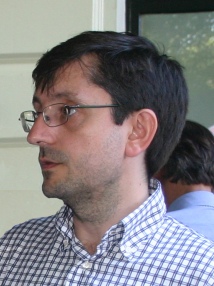Professor Mauricio Barahona obtained a PhD in Theoretical Physics (Dynamical Systems) from the Massachusetts Institute of Technology (MIT) under the supervision of Steve Strogatz in the Department of Mathematics. His thesis co-advisors were Mehran Kardar (Physics) and Terry Orlando (EECS). His thesis dealt with the spatio-temporal dynamics of networks of Josephson junctions – superconducting electronic devices that can be described as coupled nonlinear oscillators. Concurrently with his PhD work, he developed methods for nonlinear data analysis based on dynamical embeddings and time series analysis.
Mauricio then obtained Fellowships to conduct postdoctoral research, first at Stanford University and then at the California Institute of Technology. At Stanford, he worked with Mac Beasley on properties of oscillator synchronization with applications to pattern detection. At Caltech, he worked with John Doyle in the Department of Control and Dynamical Systems on rigorous bounds of model reduction techniques for dynamical systems. He also developed his research on the links between dynamics and graph-theoretical properties aimed at the analysis of network dynamics.
Mauricio joined the newly formed Department of Bioengineering at Imperial as a Lecturer in 2001 and became a Reader in Biomathematics in 2004. In 2011, he moved to the Department of Mathematics as Chair of Biomathematics. Since 2016, he has been Director of the EPSRC Centre for Mathematics of Precision Healthcare.

